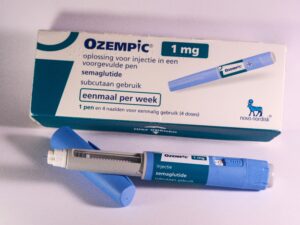Oklahoma State Department of Health officials say the number of Salmonella infections rises every year during the Easter season when stores often display or sell baby poultry (chicks and ducklings). Chicks, grown chickens, and other backyard poultry can carry a range of diseases to be aware of, but Salmonella is among the most common.
Although most Salmonella infections come from food, a significant number come from animals that carry Salmonella bacteria, such as chickens, turkeys, snakes, turtles, and lizards.
Salmonella is a type of bacteria that causes approximately 1.35 million infections, 26,500 hospitalizations, and 420 deaths in the United States every year.
Since children put their hands in their mouths frequently, they are at the highest risk for salmonella, accounting for approximately 24 percent of those who became ill with Salmonella in 2020. Children under 5 years old have the highest rates of infection of all age groups.
According to Dr. LeMac’ Morris, state public health veterinarian at the Oklahoma State Department of Health, even birds that look healthy and clean can transmit Salmonella. Before interacting with baby chicks and ducklings in stores or backyard poultry, OSDH suggests the following safety tips:
- Never eat, drink or put anything in your mouth while handling poultry.
- Wash hands with soap and water right after handling any types of birds. If soap and water are not available, use a hand sanitizer with at least 62 percent ethyl alcohol.
- Do not wash animal food and water dishes from a backyard poultry flock in the kitchen sink.
- Do not let children younger than 5 years of age handle or touch chicks, ducklings, or other live poultry without supervision.
Symptoms typically begin six hours to six days after infection and last four to seven days. However, some people do not develop symptoms for several weeks after infection and others experience symptoms for several weeks. Salmonella strains sometimes cause infection in urine, blood, bones, joints, or the nervous system (spinal fluid and brain), and can result in severe illness.
Pregnant women, older adults, and people with a compromised immune system should be aware they are also at greater risk of illness from the plethora of pathogens animals may carry and should follow safe handling precautions.
For more information about Salmonella, please visit cdc.gov/salmonella or call OSDH Acute Disease Service (405) 271-4060.










